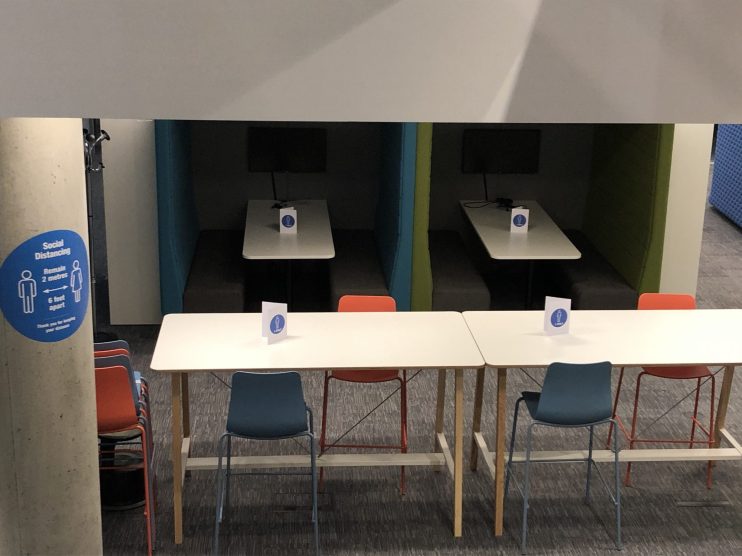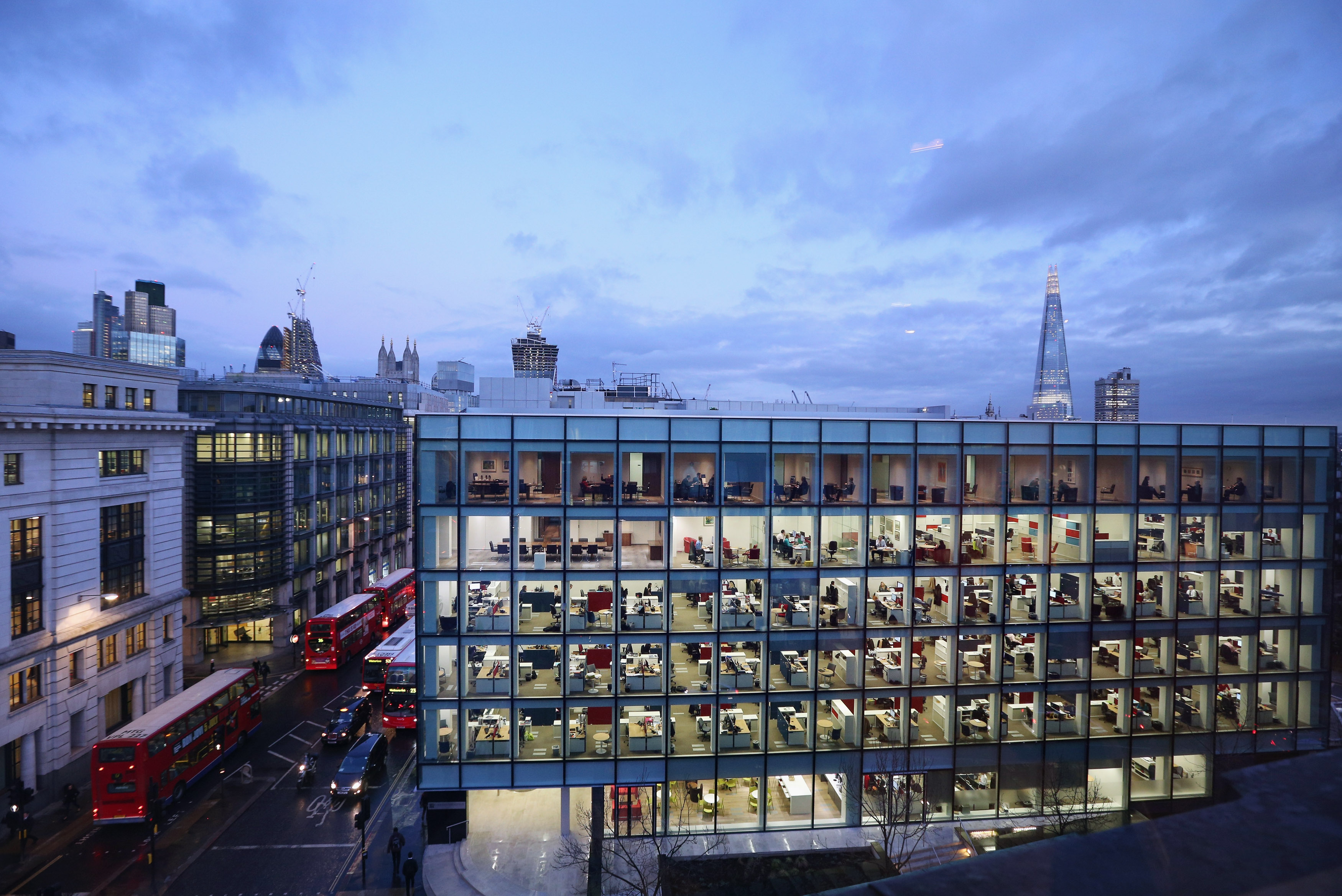Offices should be a ‘safe haven’ for suffering staff

Offices across London are slowly beginning to reopen again after Prime Minister Boris Johnson gave firms “more discretion” from August to bring staff back in after lockdown.
One such company is engineering consultancy Arup, which houses half of its 6,000 UK staff in its headquarters on Fitzroy Street in Bloomsbury.
Tim Chapman, the firm’s London office lead and director, tells City A.M. that the company has been bringing back staff for about a month due to concerns over home working conditions for some employees.
“We opened our offices about a month ago, because we recognised that there was a number of people who were really suffering badly at home,” he says.
“We had cases where we had three graduates working around one kitchen table or two working spouses having to juggle childcare with work, so there were a whole host of reasons why some people have been very anxious to get back into the office.”
When the business went into home working measures back in March, it subsidised home office furniture for members of staff who needed it.
At the moment only around three to four per cent of Arup’s London staff are working from the office.
But up to one-third of the firm’s desks are usable while obeying social distancing, meaning 1,000 staff could return safely.
Pre-Covid, only two-thirds of the firm’s staff were in the office at any one time.
Chapman adds that the firm was not in a hurry to force staff back in, saying instead it was about providing staff with a “haven” from which they could work in peace.
“At the moment, there is no compulsion for people to come back at all. We simply opened our offices so people would have a good place to work if they wanted to. So we have tried to make it as safe a haven as possible for our staff,” he says.
Making London offices safe for staff

Alongside the social distancing arrangements, Arup also conducts on-the-door temperature testing for all employees, as well as a rigorous cleaning routine of all surfaces.
Chapman believes the biggest obstacle to welcoming staff back is the two-metre gap.
Current restrictions mean staff cannot socialise in the office, which Chapman acknowledges is one of the major attractions of the workplace.
However, restrictions permitting, Arup intends to make office life more enjoyable over the coming months.
Before the Open newsletter: Start your day with the City View podcast and key market data
“We’re going to be able to actually make life more fun shortly, and allow people to have meetings, and to interact more and to sit next to their friends,” he says.
Chapman is personally especially keen to get back into the office, saying relationships and interactions are of the utmost importance to a company like Arup.
“As an organisation that is relationship-based, people-based, the interaction between our people is very important,” he explains.
“At the moment we’re sort of trading on capital that we built up in the past where people know each other and trust each other and are able to communicate very well remotely,” he adds.
“But we’re conscious in a way that that’s got a rate of diminution attached to it. Lots of firms are effectively burning through human capital built up over many years right now.”
London cannot recover without its workers
He also says Arup has a responsibility to get people back into the office safely in order to help out London’s flagging economy.
“Until more of us start going back to work, the London economy’s not going to take off again,” he warns.
“Arup is one of the largest private sector employers in Camden, with an awful lot of people who are well paid and who do all sorts of things in central London which help the economy.
“But until we all start joining in with that again, London will keep on suffering.”
But Chapman acknowledges that a return to normality will be far from straightforward.
“There won’t be a quick fix with a vaccine coming very soon,” he says. “So we think it’ll be quite a rocky road back to normal.”
All employers can do, he adds, is make the workplace the safest possible environment for staff. If employers can do that, the rewards can be huge, he believes.
“It’s really good to be back, and I feel really safe here – that’s the message we want to hear back from our staff,” Chapman concludes.